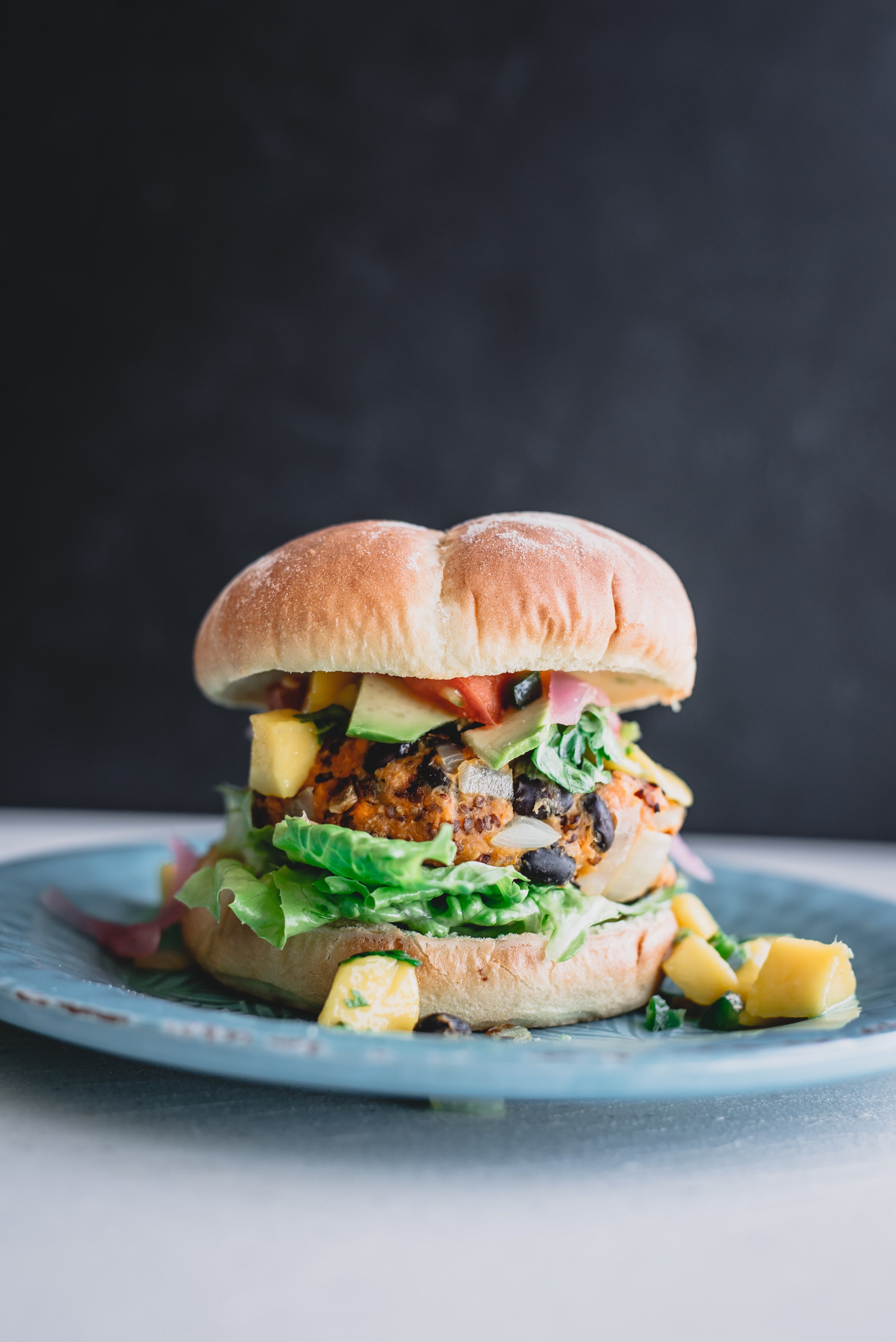How Much Protein Do Cyclists and Endurance Athletes Need?
Everyone knows you need protein, but for endurance athletes such as cyclists and triathletes, how much do you need, what are good sources of protein, and when should you be eating it? The following provides recommended protein intakes for endurance athletes and how to meet those needs.
What is Protein and Why Do We Need It?
Proteins consist of a series of amino acids. Twenty amino acids are available for use in the human body, and out of these, nine are considered essential because they cannot be produced by the body. Therefore, these nine are essential to consume in adequate amounts.
Amino acids have a role in almost all bodily functions. They provide structure to muscles and other tissue, are used by the body to make enzymes, they help create hormones, help transport substances throughout the body, can serve as an energy source when needed, and more. Athletes are commonly concerned about protein for muscle building and repair. Your body needs protein to build muscle, and if you don’t have enough, or if you are missing any of the essential amino acids, this process will simply stop.
How Much Protein Does Your Body Need?
Athletes need more protein than your average sedentary individual. Endurance athletes should be consuming about 1.4 to 2.0 grams of protein per kilogram of body weight per day, or about 10 to 35% of calories from protein. For example, a 150 pound athlete (68kg) should aim for 95 to 136 grams of protein per day. The exact amount depends on training load and intensity, age, injury status, weight loss or gain goals, and carbohydrate availability. As training load increases, protein needs for the endurance athlete also increase. Injured athletes, and athletes trying to gain or lose weight may also have higher protein requirements. In addition, plant-based eaters should aim for the higher end of the range to make sure they are getting all essential amino acids in adequate amounts. A sports nutritionist can help you determine your exact needs and how to balance with other macronutrients.
Meeting Your Protein Needs–Spread Your Protein Intake Across the Day
Athletes are already consuming more calories, so if you are eating a well balanced diet, it is likely that you are getting sufficient protein. However, it is also important to spread your protein evenly across your day to maximize the benefits.
Protein Needs Before Exercise
Include an easily digestible protein source in your pre-exercise meal. Carbohydrates should remain the focus in this meal, but including some protein will slow absorption and create a more gradual delivery of nutrients to the bloodstream. Consuming protein prior to exercise has also been shown to be beneficial for muscle protein synthesis. A pre-exercise meal could be whole wheat toast with nut butter, or oatmeal with a handful of nuts. Be sure you have enough time for digestion. If you are eating right before your workout, you may need to skip the protein as it is slower to digest and could cause gastrointestinal distress.
Protein Needs During exercise
Protein consumption is generally not needed. Energy contributions from protein during exercise are less than 10%, and consuming protein can make it more difficult to consume enough carbohydrate. However, if you are completing an ultraendurance or multi-day event that makes it difficult to meet your protein needs simply through pre-and post-race meals, you might choose to consume protein during your event.
Protein Needs After Exercise
Consume at least 15 to 20 grams of protein, and 1 gram of carbohydrate per kilogram of body weight within 30 minutes of training or competition. Follow this by a complete meal that includes another 15 to 20+ grams of protein.
Protein Needs At Each Meal
Include a protein source at each meal. Aim for about 20 to 40 grams. See below for some easy meals that meet this requirement.
Spreading out your protein consumption in this way also has the added benefit of making it easier to know you are getting enough without constantly counting grams and calories. Going back to our 150 pound athlete who needs 95 to 136 grams of protein per day, if they have 25 grams of protein 4 times a day (at each meal and one recovery snack), they will easily hit 100 grams of protein and meet the lower end of their requirements. What do these meals look like? We will look at protein sources in the next section.
Protein Sources for Athletes
Animal products including meat, fish, eggs, and dairy are complete proteins and the obvious choice where most turn when they think of protein. However, animal products are high in fat, saturated fat, and cholesterol, and consumption of animal products has long been shown to increase the risk of heart disease and some types of cancer. So for endurance athletes who need more food on a daily basis to meet their energy needs, it is important to focus on adding plant-based proteins to your diet to meet your protein requirements.
In addition to being low in fat with no cholesterol, plant-based proteins are high in vitamins, minerals, fiber, and antioxidants. The following are a few examples of plant-based foods you can add to your diet.
Tofu (½ cup): 20 grams
Soy milk (1 cup): 7 grams
Tempeh (½ cup): 16 grams
Lentils (1 cup cooked): 18 grams
Black beans (1 cup): 15 grams
Shredded wheat cereal (60g): 7 grams
Whole wheat tortilla: 4 grams
Quinoa (¼ cup uncooked): 6 grams
Brown rice (1/2 cup cooked): 4 grams
Whole grain bread (1 slice): 3-5 grams
Oats (1 cup dry): 10 grams
Peanuts butter (2 tablespoons): 9 grams
Walnuts (¼ cup): 5 grams
Soy is the only plant-based protein that is a complete protein. Other plant proteins can be easily combined over the course of a day to meet essential amino acid needs. For example, the following meals and snacks all have over 20 grams of protein.
Tofu stir fry with mixed vegetables brown rice (24 grams of protein)
Lentils, spinach, and brown rice (22 grams of protein)
Two black bean tacos on whole wheat tortillas (23 grams of protein)
Oatmeal with berries walnuts and soy milk (22 grams of protein)
Peanut butter and banana sandwich on whole grain bread (19 grams of protein)
Are Protein Supplements Beneficial?
Ideally, you want to meet your protein needs through whole foods. However, protein supplements can be helpful to athletes in a variety of ways. Protein supplements can help athletes with high protein needs more easily meet their requirements, they are convenient for travel or when refrigeration is not available, and they can be easier to consume after a hard workout or race if the athlete does not have an appetite. So the decision can be a personal one. Just be sure to find a high quality product from a reputable source.
Is More Protein Better?
There is no benefit to consuming extra protein. The biggest risk associated with consuming additional protein is from the added fat, saturated fat, and cholesterol that accompanies protein from animal sources. Consuming too much protein from animal sources can also make it difficult to consume enough carbohydrates, fiber, and nutrient dense foods such as fruits and vegetables. Plant-based proteins are always accompanied by carbohydrates, vitamins, and minerals, making them an excellent place to focus to meet your protein needs without added fat and cholesterol.
Ensure Adequate Carbohydrate Intake
Now that you have done all this work to make sure you are getting the protein you need, make sure you are enabling it to do the work you want it to do. Specifically, consuming enough carbohydrates throughout your day and during workouts will help ensure your protein is going to where your body needs it and not to support your energy demands. When caloric expenditure is high, or carbohydrate intake is low, the body can convert protein to carbohydrate to supplement its energy needs through a process called gluconeogenesis. However, most of the protein used in gluconeogenesis comes from breaking down muscle–not something you want. So make sure you are also eating enough carbohydrates to support your energy needs and avoid using valuable muscle protein for energy.
Related Posts
Sources
Witard, O. C., Bannock, L., & Tipton, K. D. (2022). Making Sense of Muscle Protein Synthesis: A Focus on Muscle Growth During Resistance Training, International Journal of Sport Nutrition and Exercise Metabolism, 32(1), 49-61. Retrieved Oct 17, 2022, from https://journals.humankinetics.com/view/journals/ijsnem/32/1/article-p49.xml
Arent, S. M., Cintineo, H. P., McFadden, B. A., Chandler, A. J., & Arent, M. A. (2020). Nutrient Timing: A Garage Door of Opportunity?. Nutrients, 12(7), 1948. https://doi.org/10.3390/nu12071948
Fink, Heather Hederick and Alan Mikesky., Practical Applications in Sports Nutrition. 6th ed., Burlington, MA, Jones & Bartlett Learning, 2021.
Photo by Deryn Macey on Unsplash


